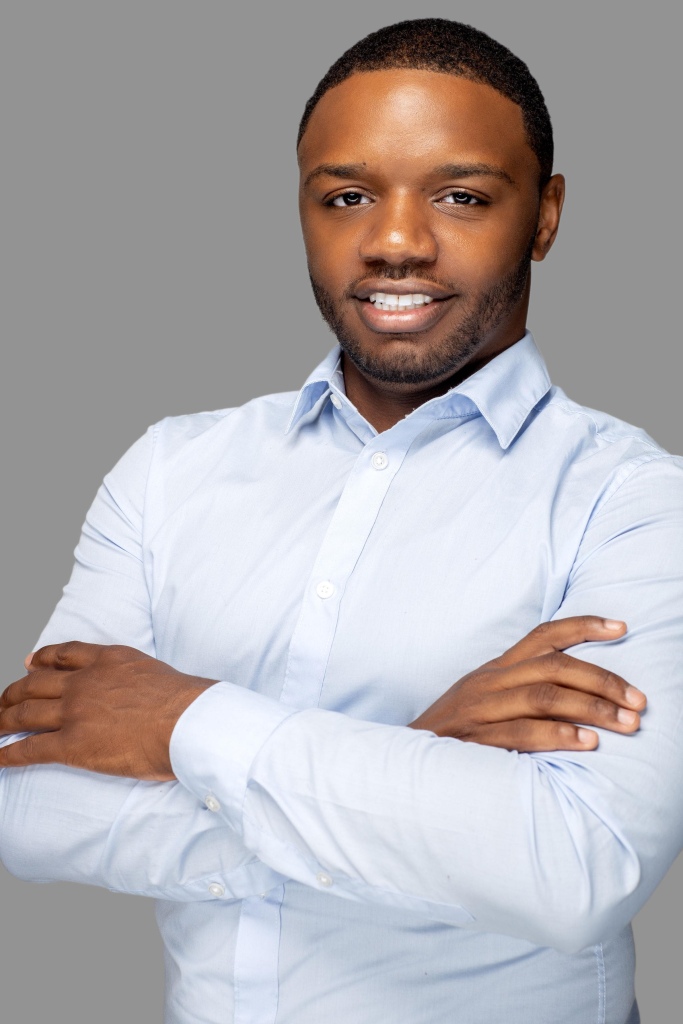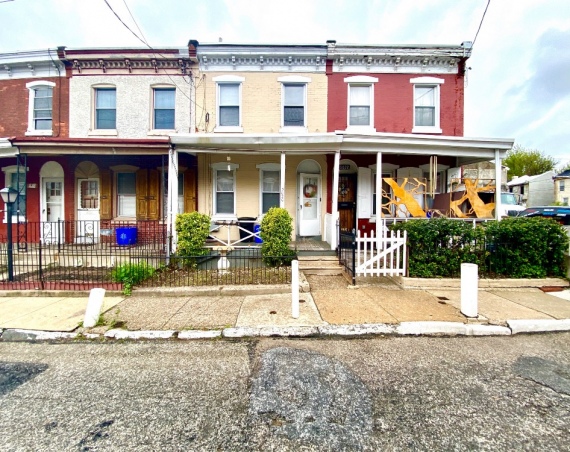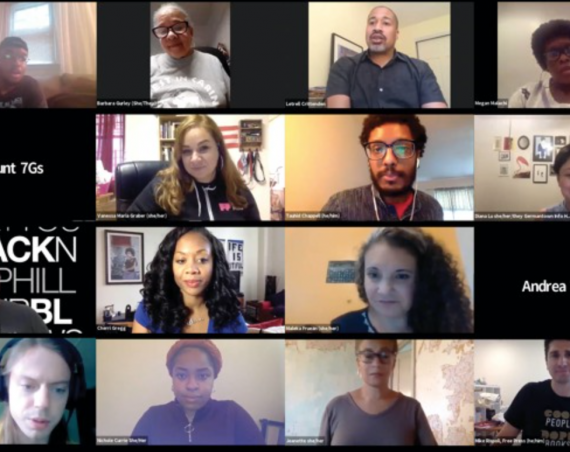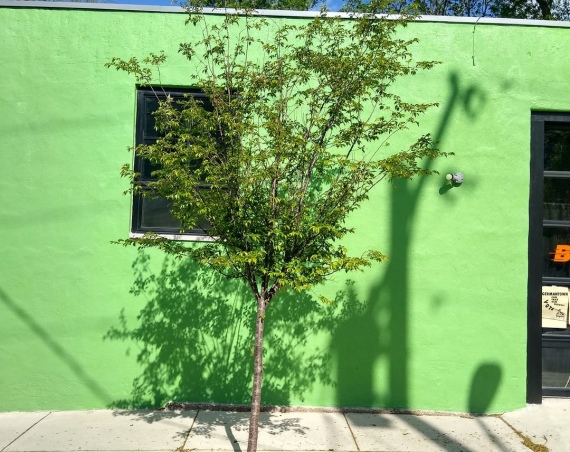
It’s been more than two months since Andre Carroll lost his bid for Pennsylvania State Representative in the 201st Legislative District by a 15% margin. Some could call this an impressive feat, especially as a first-time campaigner going up against the reigning State Representative for the past nine years. And even though his first attempt fell short, Carroll has no shortage of optimism about his future.
Carroll is a 31-year-old openly gay Black man born in Philadelphia and raised in Germantown by his late grandmother. He credits her for giving him a second chance at life. Carroll says his mother struggled with addiction since she was 14 years old, and his father was incarcerated for about 95% of his life. He shares that his grandmother was the one who brought him home from the hospital and from there instilled a lot of the knowledge and wisdom that he carries with him daily. He credits her for a good fraction of the reason that he gained interest in politics.
“She would always take me to the polling locations, and she allowed me to push the button,” Andre says, recalling those significant moments from his childhood with his grandmother. “That empowered a young person, you know? I wasn’t able to vote, but I felt included.”
The influence didn’t end at the polls. Carroll also remembers going back home and watching the results on television with her. He says those moments help him remember the outcomes and results of prior elections. The 2008 Presidential Election sparked a discussion between him and his grandmother that would ultimately help Andre realize he had a higher purpose in life. That was the year Barack Obama and Hillary Clinton would go head-to-head in the Democratic presidential primary. His grandmother was a huge Clinton supporter from the 1990s because of the economic growth during former President Bill Clinton’s term. She was hopeful that electing another Clinton would have similar effects on the country, especially during the Great Recession.
Carroll didn’t share the same sentiment as his grandmother. He says former President Obama was a breath of fresh air as a young Black candidate at the time. However, he couldn’t lend his vote because he wouldn’t turn 18 for another two months after the election, so he needed to create a dialogue with his grandmother about their opinions. Carroll admits that his grandmother was strong-willed and wouldn’t budge, so he assumed she would vote for Clinton. But, two weeks before the 2008 primary, she disclosed she would vote for Obama. And that changed him for the better.
“It was a moment for me,” Carroll said, pausing for a brief moment. “Because it showed me I had the power to organize, and I didn’t even know I was organizing. I was simply having a conversation with the woman who raised me and who I loved.”
From there, he would go on to graduate from Pierce College and immerse himself in the political atmosphere. He volunteered for local and national campaigns for folks like Doug Oliver in the 2015 mayor’s race and Bernie Sanders in the 2016 presidential race. For the past decade, Carroll has worked in government jobs in the Philadelphia City Controller’s office and Pennsylvania State Senate. He has been a campaign worker for folks like Council members Kendra Brooks and Isaiah Thomas. Those experiences and others like being a server, an educator, and a Black person in America helped him realize he wanted to run for office. He confessed it was one of the scariest things he’s ever done.
“You’re putting yourself on front street,” Carroll said, speaking about the level of transparency and vulnerability he took into the campaign. “Because you never know what tomorrow is going to bring. You know, the first thing we all do [in the morning] is check our phones, right? There’s an anxiety of not knowing what that notification is going to say, for various reasons.” While he says he’s never done things he’s not proud of, he says as a candidate you brace yourself for what will be said about you.
But the Germantown High School alum recounts the positive aspects of running a campaign for State Representative. One of his positives was the ability to keep his voice in his campaign. He only took contributions from individuals and unions, not from Super PACs or other political organizations. His team raised over $95,000 solely through community support from individuals and unions, which allowed him to speak clearly about his interests and issues of choice, which included healthcare, criminal justice, and education at the top. Carroll’s bid for State Representative was intentional, as he says it is the most intimate relationship a resident can have with an elected official. He explained that City Council districts are smaller for most places than State Rep districts, but it’s the opposite in our city. So being State Rep would have allowed Carroll to represent the people he grew up around and shared similar experiences of lack of access to resources by helping to pass legislation.
The campaign reconnected Carroll with many people he’s encountered in his life, like classmates, co-workers, and even his kindergarten teacher. He adds that establishing new relationships with residents around the 201st district was a great experience. Carroll and his team reached over 10,000 homes during campaigning, and while they didn’t get to speak to someone at every door, community building was still one of the best parts of the campaign. Carroll’s team also incorporated elements of mutual aid into his campaign by feeding more than 2,000 people on the campaign trail.
Carroll gracefully refutes any loss when asked about his feelings about losing the primary election. Receiving 43% of a vote against a nine-year State Representative is only a loss at a glance, he says. It showed that a good portion of residents in the 201st District would like to see someone new. Going into the race, Carroll didn’t know 4,000 people in his neighborhood, so receiving more than 4,350 votes seemed like a big win. He also believes that familiarity played an essential role in the election outcome and hopes that this campaign was a first step in the district getting to know him better.
Commenting on what this means for future elections, the self-proclaimed servant leader says, “We created a blueprint to be able to build off of now. We see exactly what the community wants and can build off that.” His key takeaway from running this campaign is to go with what his heart tells him, and sometimes that’s going against the tide.
Carroll shares the one thing he wishes he would have been able to do during his campaign – speak with his grandmother. In 2009, she passed away from liver cancer, which he cites as one of the most influential factors in his advocacy for better health care. “I thought about her so much during this campaign,” he says. “I wish I could have a conversation with her and ask her what her thoughts were.” Carroll disclosed he felt solace in many of these conversations with older women during his campaign. He shared a moment when he realized that some of those same women found inspiration in his story and connection to his grandmother.
He recalls canvassing on Wayne Avenue with some of his volunteers one afternoon. One of his volunteers approached a woman about his campaign, and he overheard the woman tell the volunteer that he had earned her vote based on his story. He says, “I felt like I had to gather myself because I felt like I heard my grandmother. And you know, that’s happened to me several times on the campaign trail. And that’s what keeps me going because there are people who see their grandson in me.”
These days Carroll is working with hospitality union workers at Unite Here and thinking about how he can get more resources into Germantown. There isn’t a single thing he says he would change about his campaign. Though it has been an adjustment getting back to normalcy, he has been able to get back to doing things like walking his dog, going to the gym, practicing better eating habits, being kind to himself, and letting his faith lead him.
Carroll ends by sharing a question he regularly asks himself about his future: “How do I show up for folks?”



